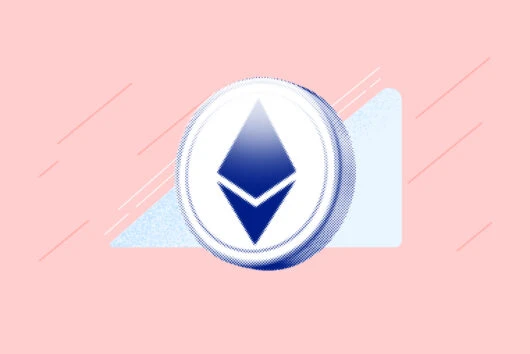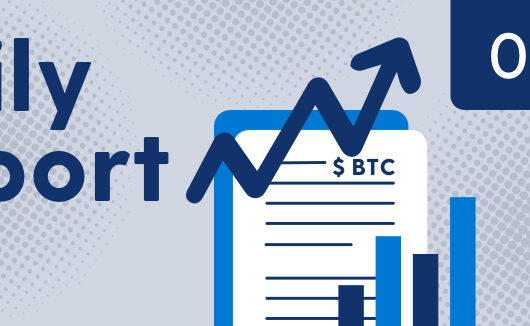Anthony Pompliano: “I think Bitcoin’s going to go to at least $100,000”

We recently partnered with Global Crypto (formerly SA Crypto) to give you access to the biggest crypto personalities from around the world. In each episode, we delve into the most topical crypto issues to get the inside track on what’s going on in the space from those on the frontline making it happen.
This week, we’re spotlighting the first episode in which presenter James Preston chats with Anthony Pompliano, one of the world’s leading voices on tech innovation and digital assets. He’s also the co-founder and partner at Morgan Creek Capital. Here are the highlights.
James: Take us through your journey – how does a guy who served as a sergeant in Iraq, a product manager at Facebook, and then headed up growth at Snapchat, become a venture capitalist who loves Bitcoin?
Anthony: I think it’s one common thread – I basically do the things I want to do and that I find enjoyable. I’m not necessarily someone who buys into the constraints that society normally puts on us in terms of “you gotta go to this type of school”, “you gotta go get a Masters degree”, “you gotta go work here for five years and then do this”. There are a lot of people who try to play chess and they end up looking back at 45 or 50 years old and think, “where’d my life go?” Maybe they got to the point in their career but they didn’t really enjoy it, so I’ve just never been somebody who took that path and each step in my career I told myself what I wanted to do and then I went and did it. I find myself here now and I think that, ultimately, it’s all the same. Whether it’s growing networks or building companies – they all have a lot of the same principles and disciplines. I think it just looks a little different on the output side.
James: Before I get into the nitty-gritty of crypto assets and blockchain tech – your fame is borderline unprecedented in the crypto world. Did you feel as popular when you were getting written about by the likes of TechCrunch when you were at Snapchat or Facebook, or is this a whole new level? Describe the contrast between what you’re experiencing now in the crypto industry and the more traditional tech industry.
Anthony: I definitely don’t think that I’m famous, that’s for sure. I tend to look at this very much as I have the propensity to say exactly what I think – I don’t really sugarcoat things. There are people who like that but there are also people who don’t like that. Where you see a lot of the engagement online and the media coverage, there’s just as much negative as there is positive. If you see a lot of that coverage, you’ve gotta have thick skin and, for me, I frankly don’t care what anybody says.
From a notoriety standpoint, the world tends to gravitate towards people who say the truth, whether it’s popular or not. They’re overly transparent, so they say when things are right, they say when they mess up or make mistakes, and lastly, there’s this sense of courage to say some of this stuff. It’s unpopular to say things against people who are powerful, but when you look back in history, there’s always somebody who needs to say it. I think that myself, and a bunch of other people in the Bitcoin community have done that and here we are today. We’ll see how it plays out, but I like our chances.
James: What are your thoughts on the industry as a whole? Let’s look at this from a technological viewpoint… How do you feel about blockchain tech outside of finance? Is there room for things like smart contracts, decentralised computing that so many of the enthusiasts are striving for? Or is it purely a financial game?
Anthony: I don’t think it’s just financial by any means. At the end of the day, a blockchain is simply automated accounting. But to me, there’s actually a very small number of businesses today where using blockchain makes sense, but over time that will grow.
It’s similar to what we saw with the internet – it was very clear that eventually, every company would have to have an internet presence early on. The big question was: who’s going to be the first? Back then, you couldn’t have gone and built Amazon like it looks today. You had to just build a bookstore and slowly grow it over decades. I think that’s what’s going to play out here. Eventually, every single business will use an automated accounting system to process their transactions, whether that’s monetary or otherwise. But today that looks like a very small number of companies and they’ll be very vertically-focused. Over time, you’ll see them add more and more functionality, and I think that’s part of the excitement or opportunity: what can be built over the next couple of decades.
James: So you don’t consider yourself a Bitcoin maximalist?
Anthony: We’ve invested in all kinds of stuff. To me, Bitcoin is a currency. It is the only currency that matters and I look at the framework of Bitcoin. Bitcoin has separated money from the state and that’s a very powerful idea and it’s a very unpopular idea. But if that becomes important, Bitcoin will be much, much more valuable on a market cap basis than it is today. So that’s kind of a money-type application. But there are many other applications of automating the accounting of our transactions that we’ve invested in and I think that’s the beauty here. We ultimately believe that every stock, bond, currency or commodity will be digitised, and when you get digital assets, you can now have them transacted in an automated and real-time fashion through a blockchain. It’s just going to take a long time to get there.
James: Tell us about the first time heard about Bitcoin? Where were you? What went through your mind?
Anthony: I think it was 2014 or 2015, but I don’t have one of these crazy “hey I heard about it in 2010” stories. I was working at Facebook and we just hired David Marcus from PayPal and he’d come in to run the Messenger team. I don’t actually remember if it was him or somebody else I heard it from the first time, but there were a number of people over a couple of weeks or months talking about Bitcoin and remittances and all the things that they could do in the Messenger platform. I remember, I turned to a gentleman who worked with me who was an engineer and I said “hey what the hell are they talking about” and I’ll never forget, he looked at me and said “it’s stupid”, and so I didn’t Google it or anything. Now whenever I talk with him, I always remind him, I say “yeah do you remember – it’s not stupid”.
Obviously we both have a different perspective today, but that was the first time. And then when I really got into it was in 2016, when a gentleman, JP Barrett, who I’d met when he was in high school and he was now in college and he sat me down and said, “you’ve gotta look at mining.” I didn’t know what it was and he walked me through it. So I went ahead and bought a bunch of mining rigs, got them installed and learned by doing. Very quickly, it was obvious this was something very different, something very powerful and something I wanted to spend more time learning about. So we did it. Putting money in and having skin-in-the-game allows you to pay a lot more attention.
I was like “did the price go up, go down, why did it do that, how does this work?” And thinking about the hash rates, difficulty adjustments – all of these different things and very quickly I realised I was learning in that process and so from there I said “hey look, you know rather than have this test personally, I think we should go down larger facilities and myself and my partner, Jason went and did that.
James: Let’s chat about the price action and your approach to investing in these numerous digital assets. Is it purely on a fundamental basis or is it based on “technically I can see what’s happening here, is it going to lead to some serious growth?”
Anthony: Yeah there are two pieces to this one – what’s the macro view and what’s happening on the micro-level, like what we use as indicators to buy.
I’ll start with the micro side. I do not look at the US dollar price from a buying standpoint. I think the best thing you can do is understand time in the market is much more important than timing the market and if you go back to 2017, Bitcoin went up 20X that year. If you took away the nine largest gain days of that year, you could have possibly or been flat. All of the game was in those nine days, so if you’re not in the market and those nine days happen, you miss it. I think that what’s really important here is people who understand that say “okay well how do I put a position on or how do I accumulate Bitcoin?” So I think of it in Bitcoin-denominated terms. So how much Bitcoin do you own and then basically, dollar-cost average in over a period of time.
On a macro level, last June I started to write about a lot of warning signs that were going off. You could see companies are over-leveraged, CEOs were starting to step down, then we got into Q3 and you see a lot of the repo market gyrations, and even more issues like yield curves inverting. I said the only two tools that central banks have is they’re gonna cut rates and they’re going to print money. I didn’t think they were gonna get to zero, I thought they were gonna go low but not to zero, and I definitely didn’t think that they were gonna print +$3 trillion in a matter of weeks. I didn’t anticipate the aggressiveness and the extreme level they’ve gone to, but as they cut those rates and print money it’s going to be very simultaneous at around the same time as the Bitcoin halving. As they cut rates and print money, people will run into sound money principled assets like gold and Bitcoin. If you get that halving or supply-shock at around the same time, I think it’ll end up serving as rocket fuel for Bitcoin.
I’m on the record of publicly stating that I think Bitcoin’s going to go to at least $100,000 by the end of 2021. So that’s kind of 18 to 20 months from now and a lot of that’s driven by the supply shock in terms of the Bitcoin halving, but I also think there’ll be a pretty significant demand shock as well where you’ll see a bunch of people start looking to protect their wealth, and Bitcoin will be one of many solutions for them to do that.
James: There’s talk about the US dollar losing its reserve currency status in the coming decades – a couple of economists have started to explore this. Even Ray Dalio is now really delving deep into the shift in economic powers. Do you think that Bitcoin will become a serious reserve currency in our lifetimes and if so, what kind of time frame do you think this could happen in?
Anthony: I’m 31 years old, so let’s call the lifetime 50 years give or take – I think it’s possible. If you go back to 1971, that’s almost 50 years ago since we went off the gold standard, so it’s true that a lot can happen in that time period.
What I do think is going to happen in the short-to-medium term is that the dollar will continue to strengthen and a lot of the developing market currencies will either just devalue incredibly against the dollar or you’ll see outright failures. I think Lebanon is a great example of this, when they imposed capital controls. The Australian Dollar went down by 40/50% earlier this year against the US Dollar. So really you’re going to get a consolidation where there will only be five to eight fiat currencies that matter in the world where right now there’s maybe 15 of them. You’ll get consolidation, and you’ll get Bitcoin, which will gain adoption, strengthen, get more hash rate and at some point I believe there’s a showdown.
I don’t think it’s a confrontational showdown, I think it plays out over many, many years. Take Russia and China, for example – they both want to get off the US Dollar badly, but there’s really no other option. What are they going to do? With Bitcoin, they can both agree to do bilateral trade denominated in a currency they know no one is manipulating or there’s full transparency into it.
I don’t think we’re anywhere near seeing that happen, especially with world superpowers. I do think that at some point in the next 15 years, that will become a saving grace for a number of countries as they look to get off the dollar system and really mitigate that risk that they have. When it comes to the larger superpowers, you could see a really interesting and frankly scary world where if you had two or three superpowers come together and said “we’re all going to move off simultaneously”, whether it’s to Bitcoin or something else, that would be a shake-up of the world order that would definitely be felt across industries and across geographies.
James: What kind of material do you read and would you recommend to people that would be interested in those kinds of shifts in economic powers?
Anthony: Probably the number one person is Peter Zeihan – his stuff is fantastic. He’s got a daily email that he sends out. Then, frankly, Twitter. I’m amazed at the ability to just sit on Twitter and consume content. You’ve got to be careful about what content you’re consuming – your information diet may be even more important than your diet in terms of food, but I do think that Twitter has way more information than people realise. There are some of the brightest minds in finance, economics, business and technology sitting there basically just talking to each other. You get to participate and also listen – it’s an incredible tool that I think people should take better advantage of.
James: What advice can you give entrepreneurs and business people in a market like ours (South Africa) and other emerging markets like Latin America and parts of Asia?
Anthony: I think there are two key pieces of advice. The first is to build a business for the future not a business for the past. What I mean by that is, businesses rooted in brick-and-mortar retail or based on the local economy will end up being a tough slog, regardless of what geography you’re in. But if you can somehow create a digital revenue stream, I think that’ll serve you well.
With an internet connection, you can tap into a much larger market and there’s so much more opportunity. The second piece of advice is to think long and hard about any likely scenarios that could play out in your local economy and make sure you’re prepared. I think a lot of people talk about this kind of stuff, but don’t take action and all of a sudden, it’s too late. I tend to favour people who have a propensity to take action because ultimately taking action drives results. It can also help people sidestep problems that could arise in the future. You’ve got to take the time to think about your situation and then take action.
Keep your eye on our blog to catch the highlights from episode two with Raoul Pal ?
Keep reading…
7 Times the crypto community inspired us
 Discover
Discover Help Centre
Help Centre Status
Status Company
Company Careers
Careers Press
Press


